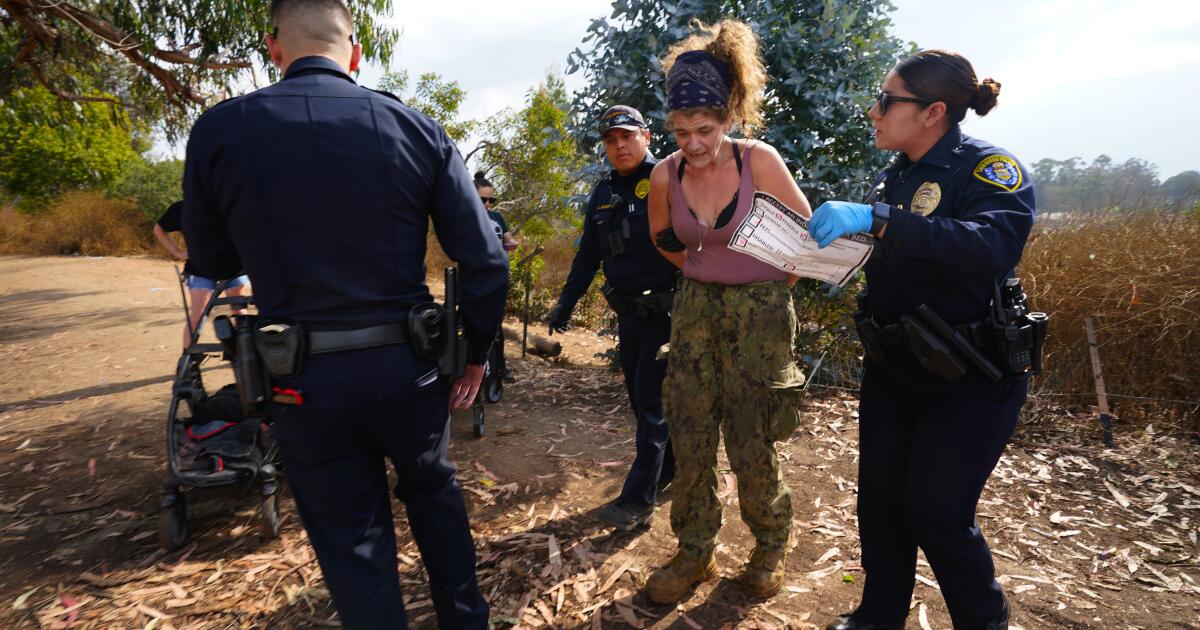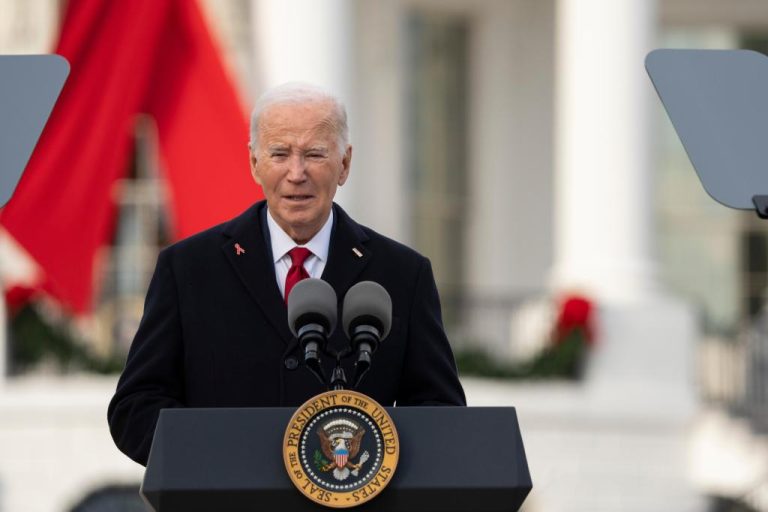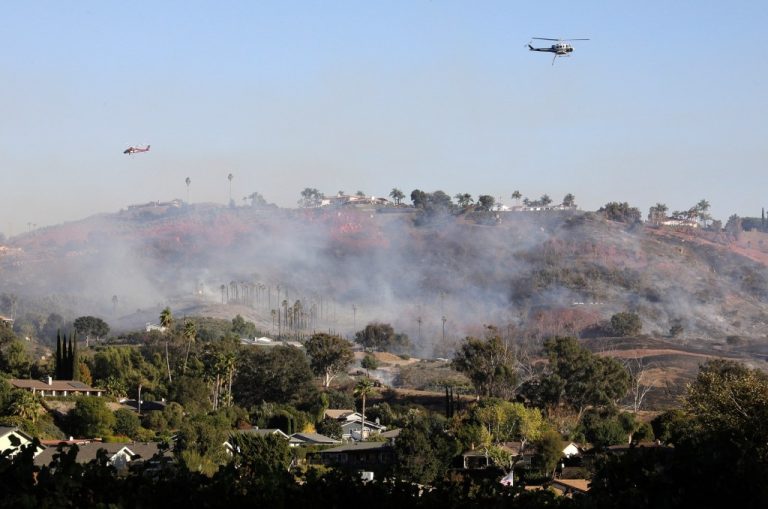

County officials have moved closer to adopting their own camping ban, following similar measures in the city of San Diego and other area communities, as the number of residents becoming homeless each month continues to outpace the total housed.
The San Diego County Board of Supervisors moved unanimously Tuesday to explore increasing limits on where people may sleep outside, although a number of details remain in the air, including the specific places to receive more enforcement.
The bipartisan vote came despite objections from dozens of members of the public.
“Our goal is not to kick people down the street,” said Supervisor Joel Anderson, the proposal’s sponsor. “My goal is to get people off the street.”
At the start of the year there were almost 200 unsheltered people living in unincorporated areas such as Lakeside, Spring Valley and Ramona, according to the Regional Task Force on Homelessness. While that’s a fraction of the thousands who lack a home countywide, the total may have increased since San Diego’s camping ban led to a small exodus out of downtown.
County leaders have advanced a number of measures to ease the crisis, including directing more money toward older adults who can’t make rent and people who just lost a home, as well as outreach in the riverbed.
Yet the spread of encampments has prompted a number of elected leaders in Southern California to give law enforcement more power.
Tuesday’s vote directs staffers to draft an “Unsafe Camping Ordinance” for unincorporated parts of the county and research properties that could potentially house new shelters. It also voices symbolic support for a U.S. Supreme Court appeal by a community in Oregon that wants to ticket people sleeping outside. The city of San Diego, California Gov. Gavin Newsom and long list of liberal and conservative leaders have already signed on to the latter effort, saying the justices need to provide more clarity about what enforcement is allowed.
A federal court ruling, often called the Boise decision, says people generally can’t be forced off public land if there aren’t available shelter beds.
Ultimately, all four supervisors said the status quo was not acceptable.
Anderson raised the spectre of the 2003 Cedar Fire to say that cracking down on encampments could reduce the risk of deadly blazes. While that wildfire was not started by a homeless person, officials have said camp fires do pose a threat.
“We should have more beds,” the supervisor said. “But that’s not an excuse to allow people to burn themselves alive because they started a fire and they couldn’t escape.”
The Republican additionally endorsed creating a safe-sleeping site for the county, days after San Diego opened a second lot for legal camping.
The Democrats on the board, Nora Vargas and Terra Lawson-Remer, said they were open to an ordinance if more was done to boost shelter capacity.
Any new beds needed to be accessible to people who were disabled and elderly, Lawson-Remer added. “The work that we have to do as a community,” she said, “is to actually get housing for folks and get help for folks.”
Homeless people have limited options the further they travel from urban areas. East County especially has few facilities, and one proposal to build tiny homes in Lakeside died amid local opposition.
Supervisor Jim Desmond seemed to nod to that case — and a similar one in Santee — when he asked that “the communities are looped into the conversation.”
A camping ban had few other allies in the room.
More than 100 people wrote messages and two dozen-plus spoke Tuesday against the measure, with many offering emotional testimony about how fines and arrests would only criminalize poverty.
“An ordinance to ban camping does not reduce homelessness, it only makes it less visible,” said Erin Tsurumoto Grassi, policy director for the nonprofit Alliance San Diego.
Just four people wrote or spoke during public comment in favor of the proposal.
It was not clear when staffers might return with a draft of the ordinance, and a final vote may include a new board member.
Voters in District 4, which stretches from North Clairemont to Rancho San Diego, head to the polls next month to choose between Democrat Monica Montgomery Steppe and Republican Amy Reichert.
A spokesperson for Montgomery Steppe did not immediately respond to a request for comment, although the San Diego City Council member previously voted against a camping ban and has been a vocal critic of encampment sweeps when beds aren’t available.
Reichert said she would support the ordinance while adding that the county needed to “immediately” create “enough shelter to compassionately help people so they are not sleeping and dying on the street.”








